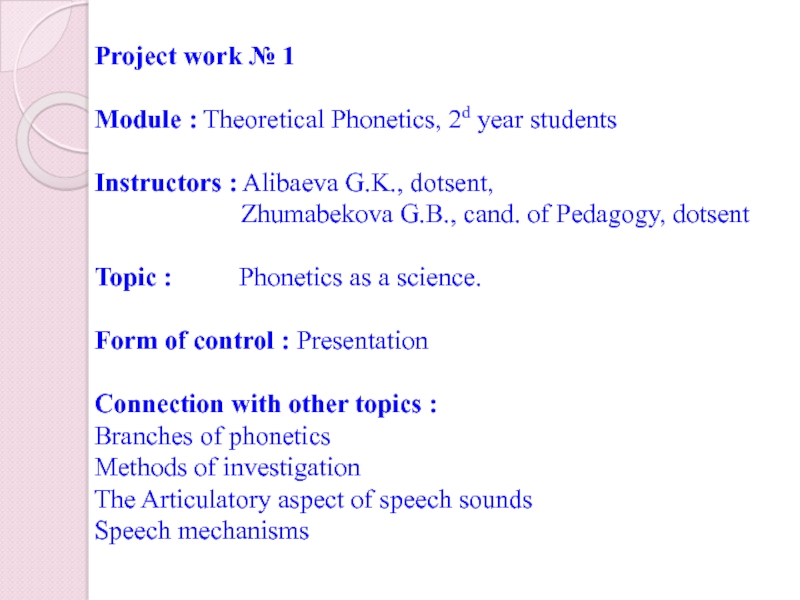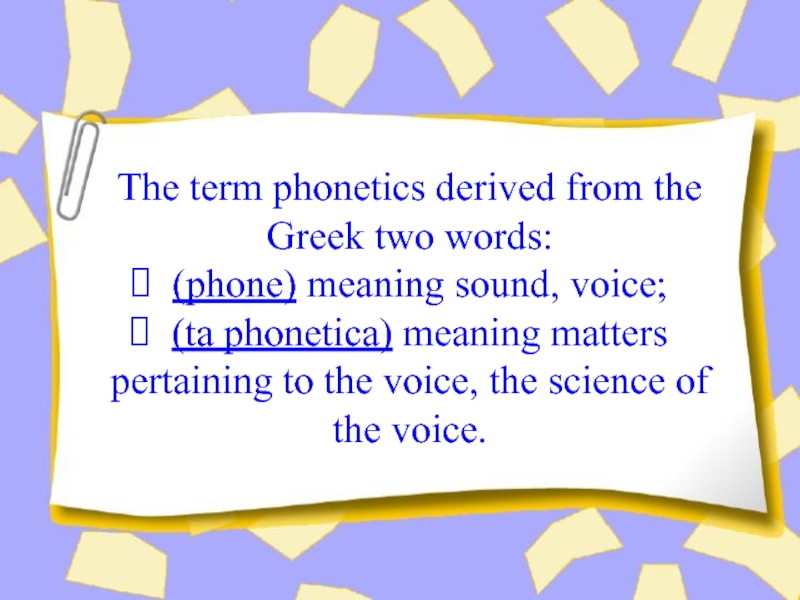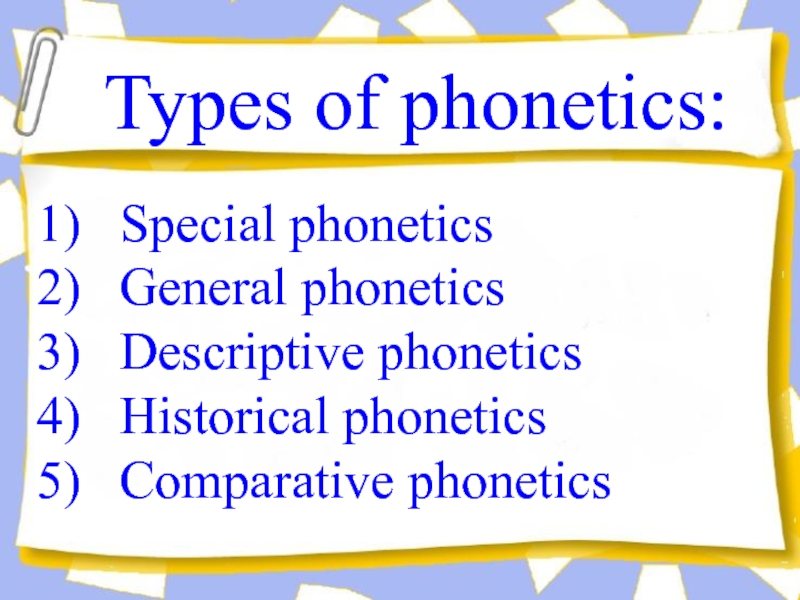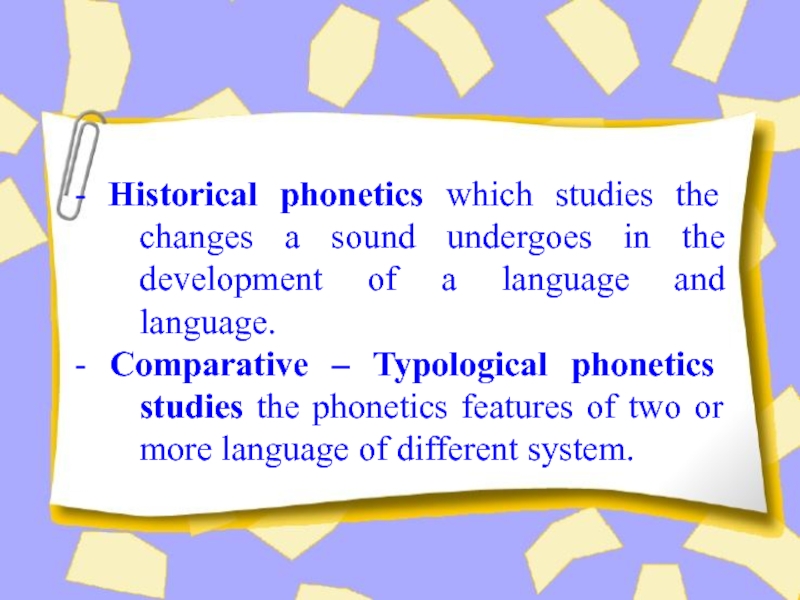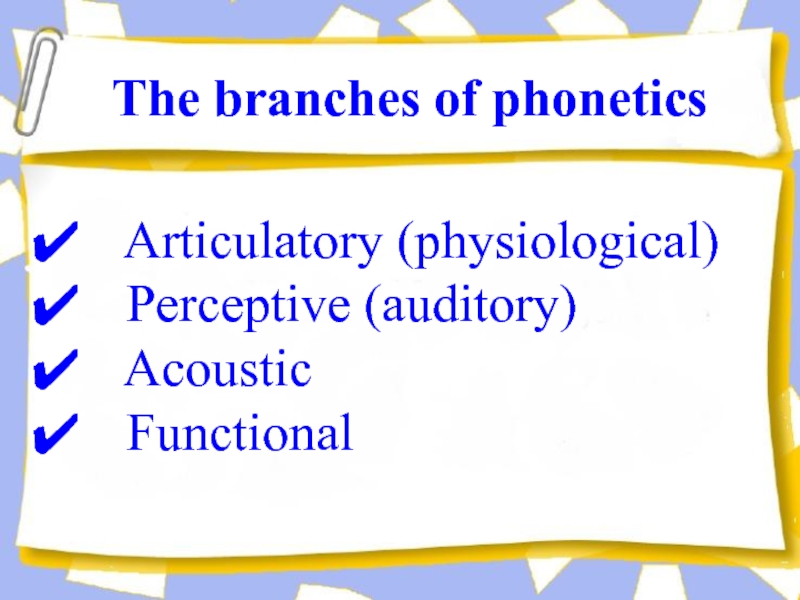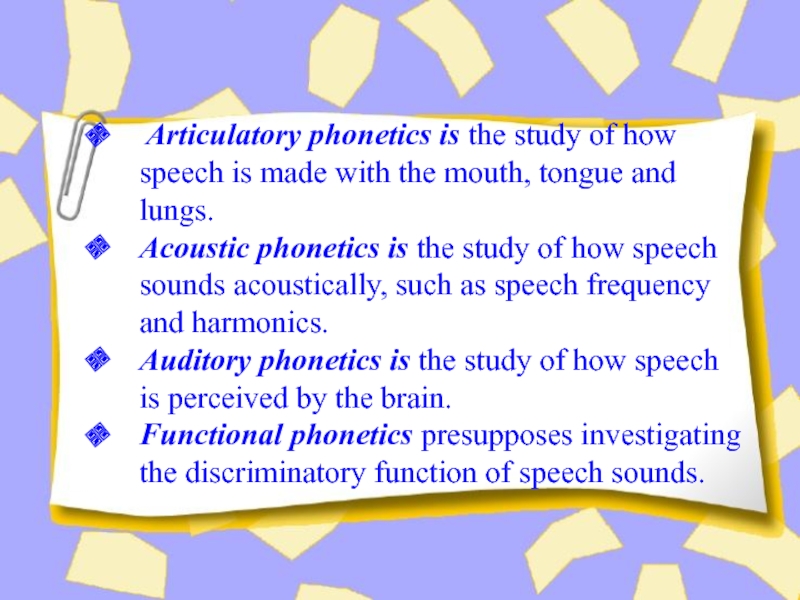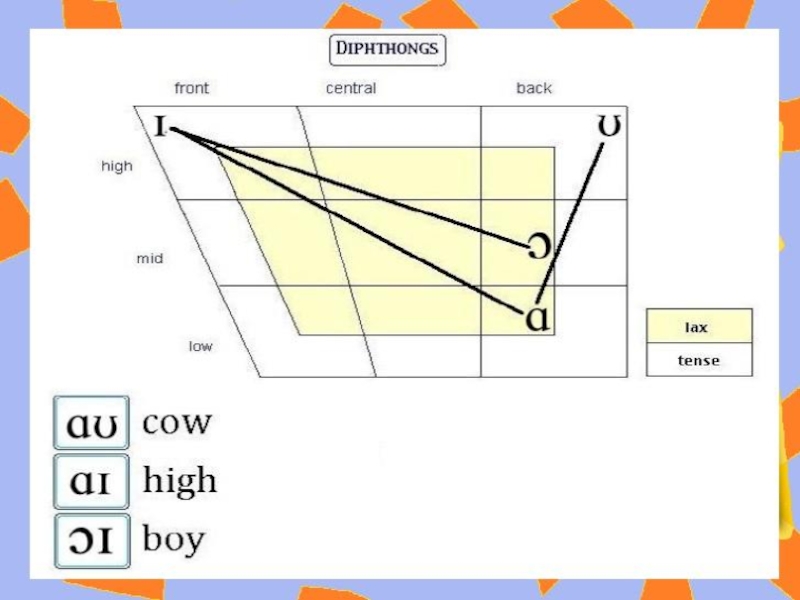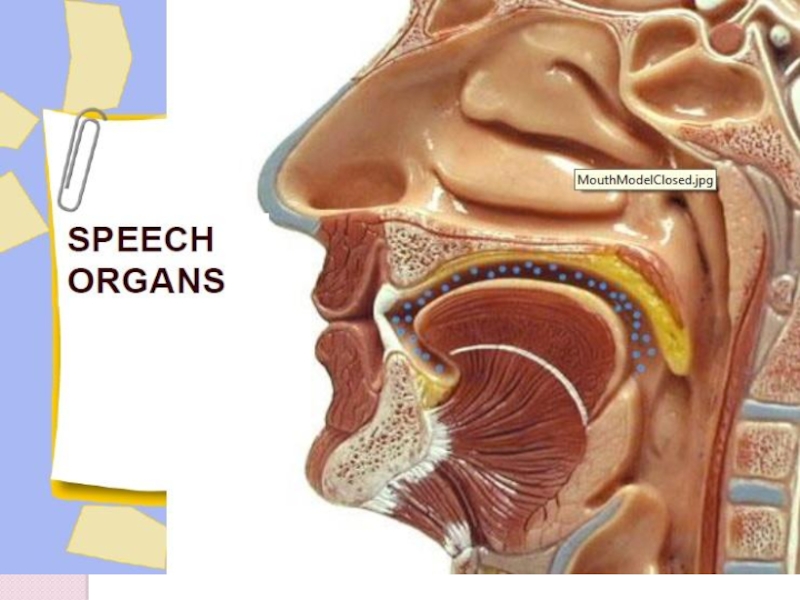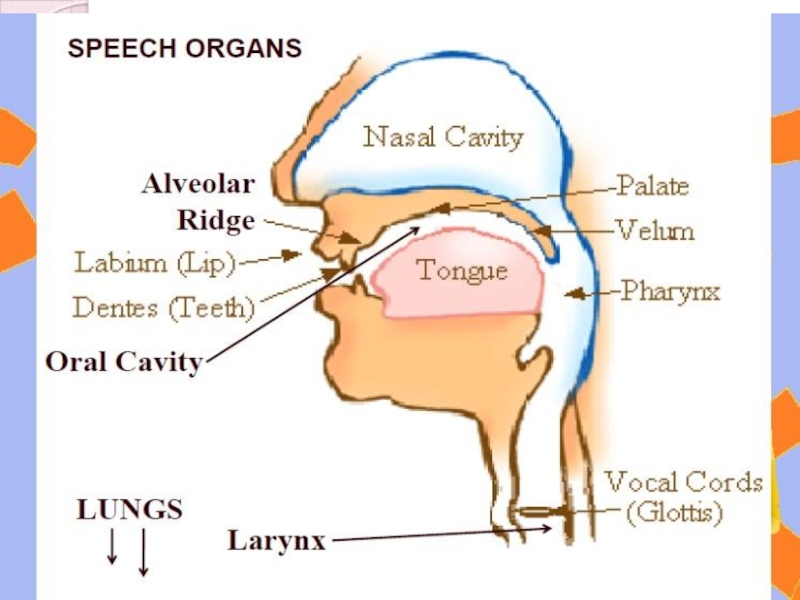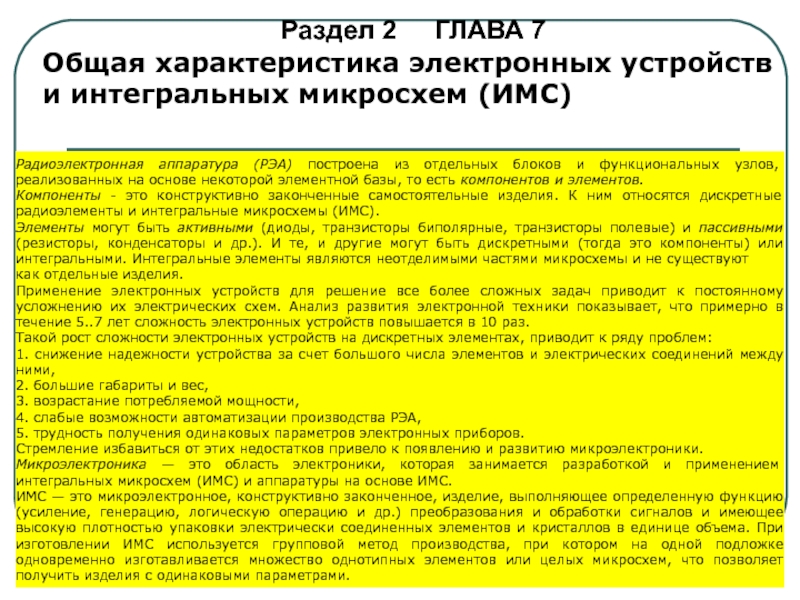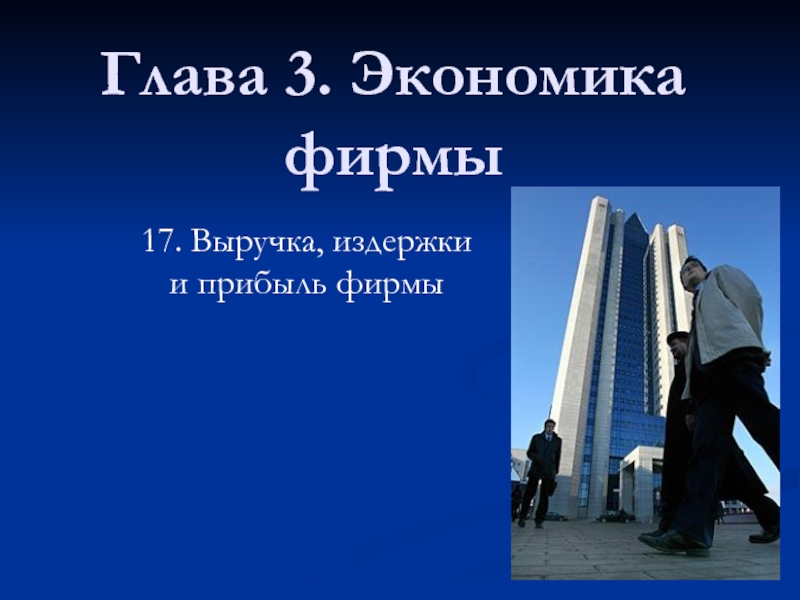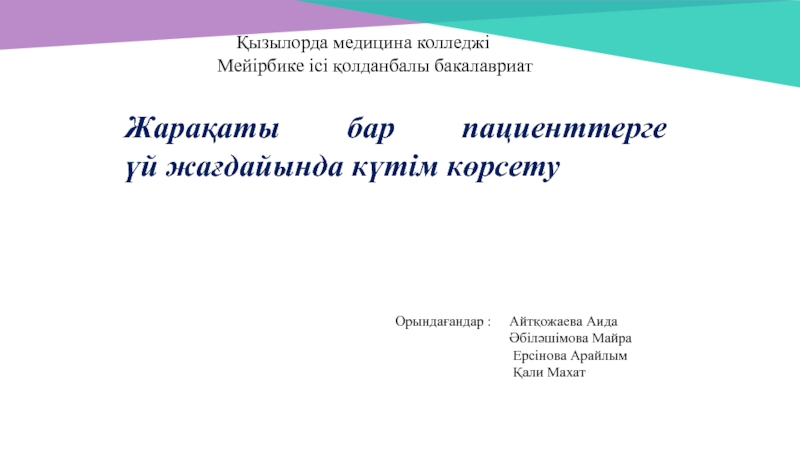Слайд 1Ministry of Education and Science of the Republic of Kazakhstan
Kazakh
Ablai khan University of International Relations and World Languages
Teacher Training
Faculty of Foreign Languages
“The Project work is admitted to defense”
____________ Chairperson of Speech Practice Department
G.B. Zhumabekova
PROJECT WORK
Theme: “Phonetics as a science”
Speciality: “5B011900-Foreign Languages: two foreign languages”
Executed by: N.Sacpanova
D.Ashimova
The scientific supervisor:
Candidate of
Pedagogical sciences: G.B.Zhumabekova
Almaty, 2013
Слайд 2Project work № 1
Module : Theoretical Phonetics, 2d year students
Instructors : Alibaeva G.K., dotsent,
Zhumabekova G.B., cand. of Pedagogy, dotsent
Topic : Phonetics as a science.
Form of control : Presentation
Connection with other topics :
Branches of phonetics
Methods of investigation
The Articulatory aspect of speech sounds
Speech mechanisms
Слайд 3Stages:
Preparation :
Define the aim and objectives of the topic
Analyze the
view points of linguists on classification of vowels / consonants.
Learn and master the phonetics as a science. See all the aspects and functions of phonetics and presented in the form of project work.
Creative :
See all the aspects and functions of phonetics and presented in the form of project work.
Слайд 5Plan:
Phonetics as a science, its aim and definition. 2 systems:
segmental; suprasegmental.
Its connection with other linguistic and non – linguistic
sciences
Theoretical and practical significance of phonetics
Divisions of phonetics
Aspects of phonetics
Branches of phonetics
Methods of investigation
Слайд 7The term phonetics derived from the Greek two words:
(phone) meaning sound, voice;
(ta phonetica) meaning matters pertaining to
the voice, the science of the voice.
Слайд 8It should be noted that phonetics is not a separate
independent science.
Слайд 9Types of phonetics:
Special phonetics
General phonetics
Descriptive phonetics
Historical phonetics
Comparative phonetics
Слайд 10 - Special phonetics is concerned with the study of phonetics
system of a concrete language.
- General phonetics is apart of
General Linguistics.
- Descriptive phonetics studies the phonetics system of a certain language.
Слайд 11- Historical phonetics which studies the changes a sound undergoes
in the development of a language and language.
- Comparative –
Typological phonetics studies the phonetics features of two or more language of different system.
Слайд 12It is a branches of linguistics, like the other branches,
such as lexicology and grammar. These linguistics sciences study language
from three different points of view:
Слайд 13 Firstly, lexicology deals with the vocabulary of a language;
Secondly, with the origin and development of words;
Thirdly, with
their meaning and with word-building.
Слайд 14The phonetics is connected with grammar
Grammar defines the rules governing
the modification of words and the combination of words into
sentences.
Language is the most important means of human intercourse. Language is the at same directly connected with thought.
Слайд 15Through the system of rules of reading phonetics is connected
with grammar and helps to pronounce correctly singular and plural
forms of nouns, the past tense forms and past participles of English regular verbs, e.g.
/d/ is pronounced after voiced consonants (beg-begged);
/t/ - after voiceless consonants (wish-wished);
/id/ - after /t/ (wanted-wanted)
Слайд 16All the branches of phonetics are closely connected not only
with one another and linguistic sciences as grammar, lexicology and
stylistics,
BUT also with non-linguistic science.
For example, acoustic phonetics is connected with:
Physics;
Mathematics;
Cybernetics;
Слайд 17Physiological phonetics is connected with:
Physiology;
Anatomy;
Anthology;
Historical phonetics is connected with:
General history;
The
history of the people whose language is studied: it is
also connected with archeology.
Слайд 18The branches of phonetics
Articulatory (physiological)
Perceptive (auditory)
Acoustic
Functional
Слайд 19 Articulatory phonetics is the study of how speech is
made with the mouth, tongue and lungs.
Acoustic phonetics is the
study of how speech sounds acoustically, such as speech frequency and harmonics.
Auditory phonetics is the study of how speech is perceived by the brain.
Functional phonetics presupposes investigating the discriminatory function of speech sounds.
Слайд 24Articulatory Phonetics
The production of any speech sound involves the
movement of an air stream.
Most speech sounds are produced by
pushing the air out of the lungs through the mouth (oral) and sometimes through the nose (nasal).
Articulatory Phonetics deals with how the sounds are produced.

